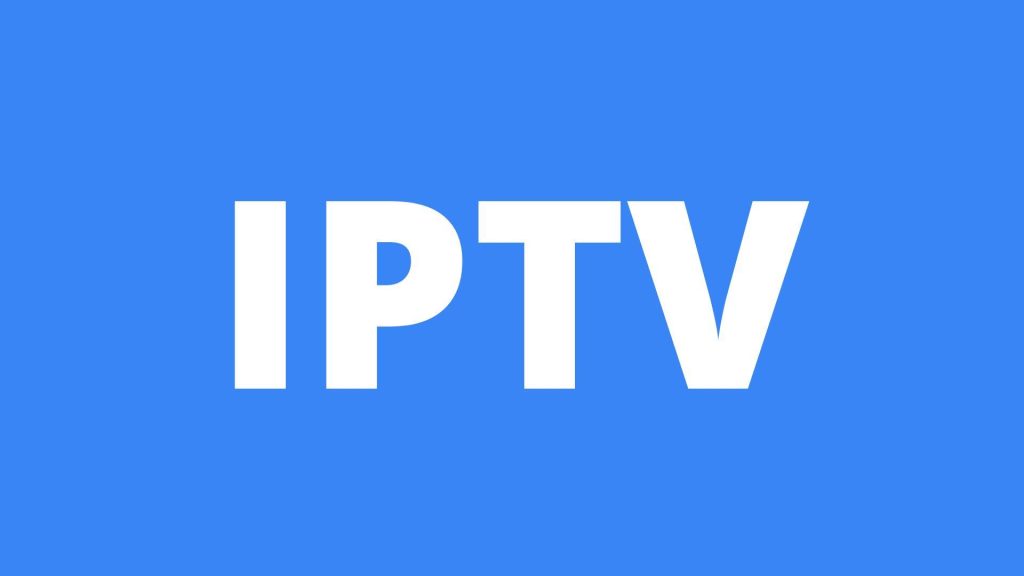Introduction to IPTV keeps buffering
Overview of IPTV buffering issues
IPTV keeps buffering and freezing are prevalent challenges that many users encounter while streaming their preferred content. These issues often arise due to inadequate internet speed, causing interruptions in the viewing experience. By understanding the primary factors leading to buffering and implementing suitable solutions, users can enhance their IPTV streaming sessions significantly.
Impact of buffering on IPTV viewing experience
Buffering manifests as pauses or temporary halts in video playback during IPTV streaming. This disruption can be frustrating for users as it hampers the seamless enjoyment of their content. To mitigate buffering problems, individuals should pay attention to their internet speed, ensure devices are updated, and opt for reliable service providers. These proactive measures can help minimize buffering occurrences and enhance the overall IPTV viewing experience.
Common Causes of IPTV Buffering
Internet speed and connection issues
When experiencing IPTV buffering and freezing, one of the primary factors to consider is the internet speed and connection stability. For smooth streaming, it is recommended to have a minimum internet speed of 7-10 MBPS for downloads and 1-3 MBPS for uploads. If the internet speed is below these thresholds, it can result in slow channel loading and constant buffering interruptions.
Server overload and stream quality
Another crucial aspect that can lead to IPTV buffering is server overload and stream quality. Suppliers often conduct tests on their servers and may adjust channel allocations to optimize performance. When servers are overwhelmed with requests or if the stream quality is compromised, it can result in freezing and buffering issues for users. Hence, ensuring that the servers are well-maintained and that stream quality is consistently high can help mitigate these problems.
Tips to Reduce IPTV Buffering
Check and improve internet speed
When facing IPTV buffering, it is essential to ensure that the internet speed meets the recommended requirements for smooth streaming. A minimum speed of 7-10 MBPS for downloads and 1-3 MBPS for uploads is ideal for uninterrupted viewing experience. By verifying and enhancing the internet speed, users can minimize buffering interruptions and entertainment seamless live TV streaming.
Adjust streaming quality settings
Another effective way to mitigate IPTV buffering is by adjusting the streaming quality settings. Lowering the video resolution can reduce the data bandwidth required for streaming, thereby reducing the likelihood of buffering. Users can manually adjust the quality settings on their IPTV service to match the available internet speed, promoting smoother playback and minimizing interruptions during live TV viewing.
Popular posts
- IPTV in the US: A Closer Look at the Cutting-Edge Technology
- Best IPTV Service Providers in the USA
- StaticIPTV Reviews: The Real Deal | StaticIPTV.us
- How to become an IPTV provider US: Start your Business
- Best IPTV with No Buffering
- Best IPTV Service Works Without Buffering
- IBO TV Player Activation 101: Everything You Need to Know
Tools for Preventing IPTV Buffering
Use of VPN for optimized streaming
To tackle IPTV buffering issues, one can consider utilizing a Virtual Private Network (VPN) to enhance streaming performance. By connecting to a VPN server located in regions like the Netherlands or Los Angeles, users may experience improved speed and stability. VPNs can help bypass geographical restrictions and optimize network routes, thereby reducing buffering interruptions during live TV streaming.
Installation of buffering prevention software
In addition to VPNs, installing specialized buffering prevention software on the streaming device can also aid in minimizing IPTV buffering. These tools are designed to optimize network settings, prioritize streaming traffic, and manage bandwidth efficiently. By utilizing such software, users can enhance the overall streaming experience and mitigate common buffering issues often associated with IPTV services.
With a holistic approach that combines both VPN utilization and buffering prevention software installation, users can proactively address IPTV buffering concerns and enjoy uninterrupted live TV viewing experiences. By optimizing network connections and stream quality, individuals can ensure smooth and reliable IPTV streaming sessions without the frustration of constant buffering interruptions.

How to Fix IPTV Buffering Issues
Resetting modem and router
To address IPTV buffering problems, users can try resetting their modem and router. Sometimes, network congestion or temporary glitches in the equipment can lead to buffering during IPTV streaming. By power cycling the modem and router, users can refresh the network connection and resolve any underlying issues that may be causing buffering interruptions. This simple step can often improve streaming performance and enhance the overall viewing experience.
Clearing cache and cookies
Another effective technique to troubleshoot IPTV buffering is to clear the cache and cookies on the streaming device. Over time, accumulated data in the device’s cache can impact streaming performance and lead to buffering issues. By clearing the cache and cookies, users can free up storage space and remove any unnecessary data that might be hindering the smooth delivery of IPTV content. This can help streamline the streaming process and reduce the occurrence of buffering during live TV viewing.
By employing these straightforward solutions such as resetting the modem and router, and clearing the cache and cookies on the device, users can effectively tackle IPTV buffering problems and optimize their streaming experience. Taking these proactive measures can lead to smoother and uninterrupted IPTV streaming sessions, ensuring that users can enjoy their favorite content without the frustration of buffering interruptions.
Preventive Measures for IPTV Buffering
Regularly update streaming apps and devices
To ensure a smooth IPTV streaming experience, it is essential to regularly update both streaming applications and devices. Firmware updates, software patches, and app upgrades often include bug fixes and performance enhancements that can contribute to minimizing buffering issues. By staying up to date with the latest versions of streaming apps and device software, users can optimize their IPTV viewing experience and reduce the likelihood of interruptions.
Limiting the number of connected devices
Another effective way to prevent IPTV buffering is by limiting the number of devices connected to the network during streaming sessions. High network traffic caused by multiple connected devices can lead to bandwidth congestion, resulting in buffering and playback issues. By prioritizing the streaming device or using Quality of Service (QoS) settings to allocate sufficient bandwidth for IPTV content, users can improve streaming stability and reduce the impact of network congestion on their viewing experience.
By following these preventive measures, users can significantly reduce the occurrence of IPTV buffering and enjoy uninterrupted streaming sessions. Keeping streaming apps and devices updated ensures optimal performance, while managing connected devices helps maintain network stability during IPTV streaming. Implementing these simple yet effective strategies can enhance the overall IPTV viewing experience and provide users with a seamless and enjoyable entertainment experience.
Expert Recommendations for IPTV Buffering
Network optimization techniques
Optimizing the network settings of streaming devices is crucial to mitigate IPTV buffering issues. Users can enhance their viewing experience by prioritizing their IPTV streaming device on the network. Employing Quality of Service (QoS) settings allows users to allocate sufficient bandwidth for IPTV content, reducing the impact of network congestion and ensuring smooth playback. Additionally, configuring router settings, such as enabling UPnP (Universal Plug and Play) and adjusting buffer sizes, can further optimize network performance for streaming.
Investing in a reliable internet service provider
Selecting a dependable internet service provider (ISP) is essential for uninterrupted IPTV streaming. Users experiencing frequent buffering may benefit from upgrading to a higher-speed broadband plan or switching to a more reliable ISP. A stable internet connection with adequate bandwidth can significantly reduce buffering instances and provide a seamless streaming experience. Conducting speed tests and consulting with ISPs to explore available packages tailored to streaming needs can help users make informed decisions to enhance their IPTV viewing quality.
By implementing network optimization techniques and choosing a trustworthy ISP, IPTV users can address buffering issues effectively and improve their overall streaming experience. Prioritizing network performance through settings adjustments and ensuring a reliable internet connection are key steps towards enjoying uninterrupted IPTV content with minimal interruptions.

Additional Tips for Smooth IPTV Streaming
Avoid peak streaming hours
To further enhance your IPTV streaming experience, consider avoiding peak streaming hours when network congestion is higher. Streaming during off-peak times, such as early morning or late at night, can help reduce the likelihood of buffering issues. By selecting less congested times for IPTV viewing, users can enjoy smoother playback and improved streaming quality.
Recent Posts
- Which IPTV service supports multiple device connections simultaneously? | StaticIPTV.us
- Which IPTV service has the most reliable streaming quality? | StaticIPTV.us
- How to Use IPTV M3U Playlists in USA – Beginner’s Guide | StaticIPTV.us
- IPTV Free Trial in USA: What to Expect in 2025 | StaticIPTV.us
- IPTV Smarters Pro Setup Guide USA – Easy Instructions | StaticIPTV.us
- Best IPTV Players for Android in USA – 2025 Edition | StaticIPTV.us
- How to Install IPTV on Smart TV in USA – Step-by-Step | StaticIPTV.us
Close background apps and programs
Another helpful tip for optimizing IPTV streaming performance is to close unnecessary background apps and programs on your device. Running multiple applications simultaneously can consume system resources and network bandwidth, potentially leading to buffering during IPTV playback. By closing unused apps and programs before starting a streaming session, you can allocate more resources to the IPTV app, resulting in a more seamless viewing experience.
By implementing these additional tips for smooth IPTV streaming, users can further enhance their viewing experience and minimize buffering interruptions. Avoiding peak streaming hours and closing background apps help optimize network resources and device performance, ensuring a more consistent and enjoyable IPTV streaming experience. These simple adjustments can make a significant difference in reducing buffering and enhancing overall streaming quality.
Conclusion and Summary
Recap of causes, fixes, and prevention tips
The issue of excessive buffering on IPTV services like Smarters Pro can often be resolved by installing a VPN on the device and changing the location to less congested servers like those in the Netherlands or Los Angeles. Additionally, ensuring regular maintenance of the device, such as clearing cache and force closing apps, can help optimize performance and minimize buffering interruptions. Avoiding peak streaming hours and closing background apps are also effective strategies to improve the IPTV streaming experience and reduce buffering issues.
Ensuring uninterrupted IPTV viewing experience
To ensure a seamless IPTV viewing experience, users are advised to take proactive steps such as using a VPN, performing regular maintenance on their streaming devices, and optimizing network resources by avoiding peak streaming hours. By following these simple tips, viewers can enjoy smoother playback, improved streaming quality, and minimize buffering interruptions during their IPTV sessions.
By implementing these strategies and best practices, users can enhance their overall IPTV streaming experience and enjoy uninterrupted viewing of their favorite content. Taking these preventative measures can make a significant difference in the quality of the streaming service and help users have a more consistent and enjoyable IPTV experience.